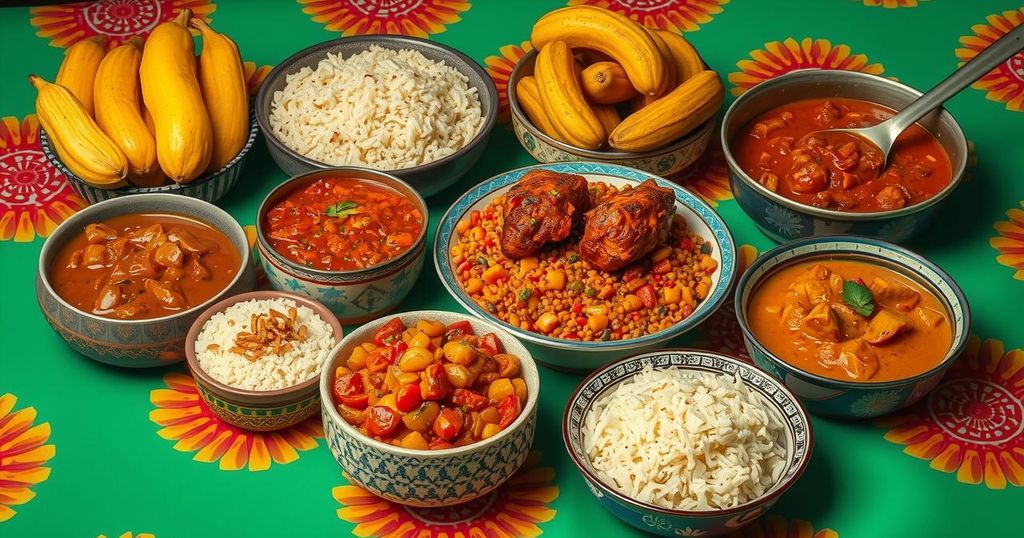Essential Guide: Foods Prohibited from Nigeria to the UK
Traveling from Nigeria to the UK requires awareness of prohibited food items, as strict regulations protect public health and local agriculture. Key restricted items include meat, dairy products, unprocessed shellfish, ungutted fish, fresh fruits and vegetables, and raw nuts and seeds. Staying informed can prevent confiscation of items and customs delays.
Traveling from Nigeria to the UK is a thrilling opportunity, yet it is crucial to acknowledge the food items that face restrictions or prohibitions at the border. The UK’s stringent import regulations are in place to protect public health, preserve local agriculture, and avert the spread of pests and diseases. Consequently, specific Nigerian foods are disallowed. Familiarizing oneself with these regulations is essential to avoid confiscation of food, fines, or delays at customs. As rules may vary, it is prudent to review the UK import regulations prior to traveling, as well as to consult airlines for their individual guidelines regarding food items.
Herein are six Nigerian foods that cannot be transported to the UK along with the underlying reasons for these prohibitions:
1. Meat and Meat Products: All types of meat—whether raw, cooked, dried, or processed—are strictly prohibited. This includes beef, chicken, goat meat, and meat-based dishes like nkwobi. These rules are designed to mitigate the risk of animal disease outbreaks, such as foot and mouth disease.
2. Milk and Dairy Products: Items such as milk, cheese, butter, and yogurt are not permitted. An exception is made for powdered infant milk or medical food, provided it is in unopened branded packaging and does not require refrigeration. These restrictions aim to prevent the introduction of harmful bacteria and diseases.
3. Unprocessed Shellfish and Snails: Travelling with unprocessed shellfish, including raw mussels and oysters, is prohibited. If transporting snails, they must be cooked and preserved. This measure is in place to ensure food safety and prevent the introduction of invasive species.
4. Ungutted Fresh Fish: Passengers may bring up to 20kg of fish, provided it is gutted prior to transport. Processed fish that is commercially packaged, such as dried or smoked fish, is allowed. However, whole, unprocessed fish is not permitted.
5. Fresh Fruits and Vegetables: Most fresh produce is banned unless accompanied by a phytosanitary certificate confirming freedom from pests and diseases. This includes fruits like watermelon and strawberries, along with leafy vegetables such as ugu. Proper certification is necessary for these items.
6. Raw Nuts and Seeds: Most unpeeled, unpackaged, and unprocessed nuts and seeds are barred from entry unless certified. This encompasses raw groundnuts, cashews, and melon seeds, as they can harbor pests or diseases.
In conclusion, when traveling from Nigeria to the UK, it is imperative to be aware of the various food items that are prohibited. The primary categories of restricted items include all forms of meat, dairy products, raw shellfish, ungutted fresh fish, uncertified fresh produce, and raw nuts. Adhering to these regulations not only safeguards public health but also facilitates a smoother travel experience. It is advisable to stay informed about the latest import regulations to avoid complications at customs.
Original Source: businessday.ng




Post Comment